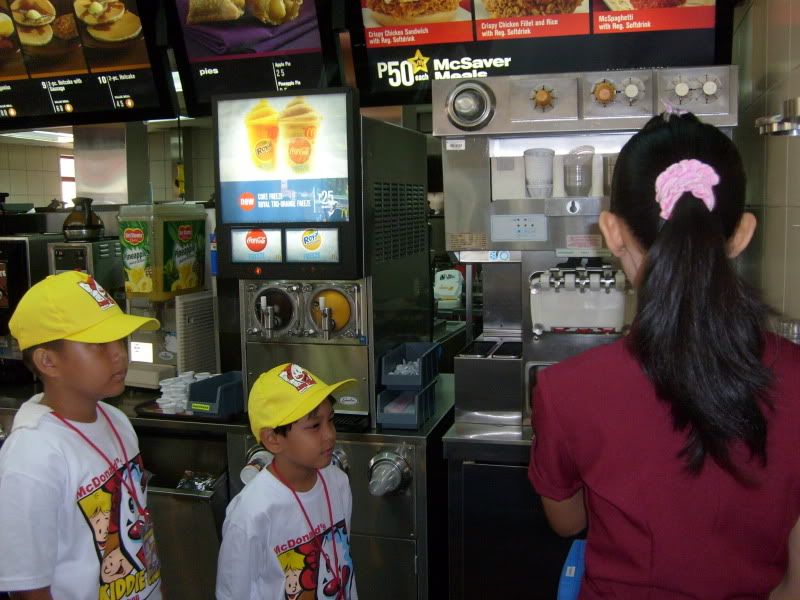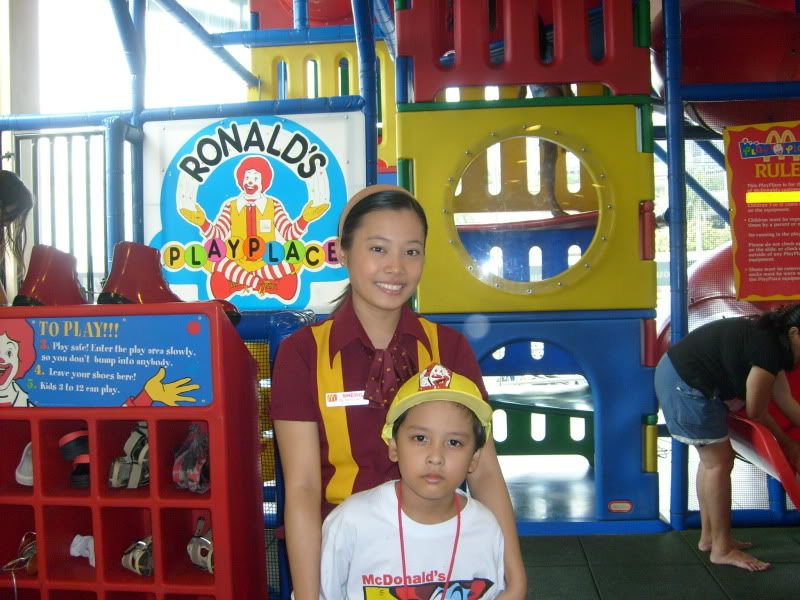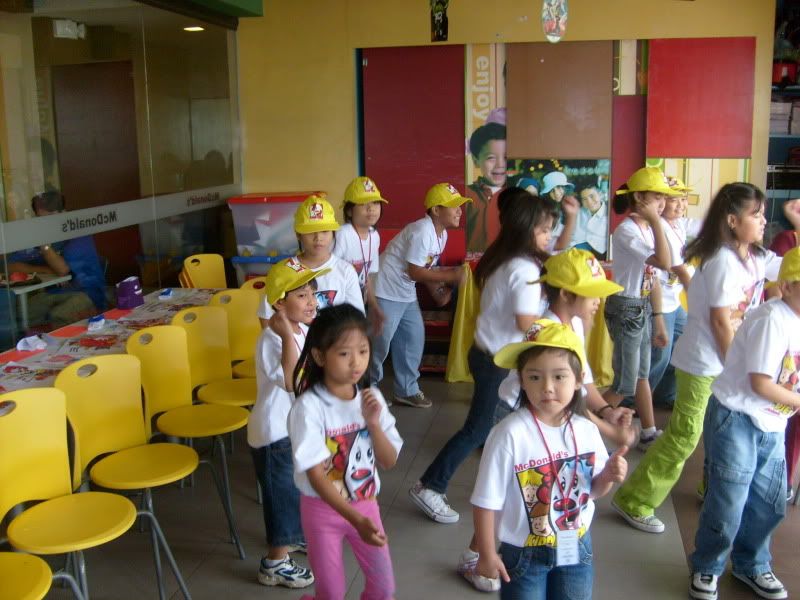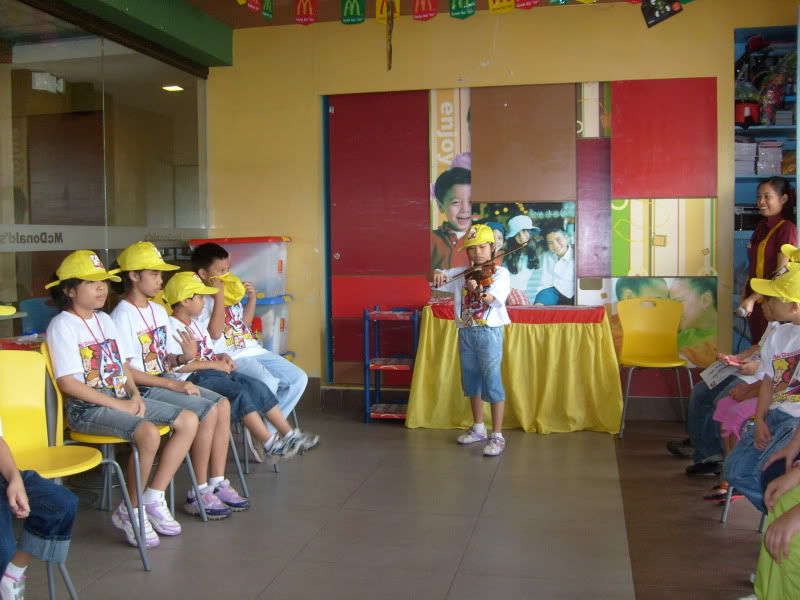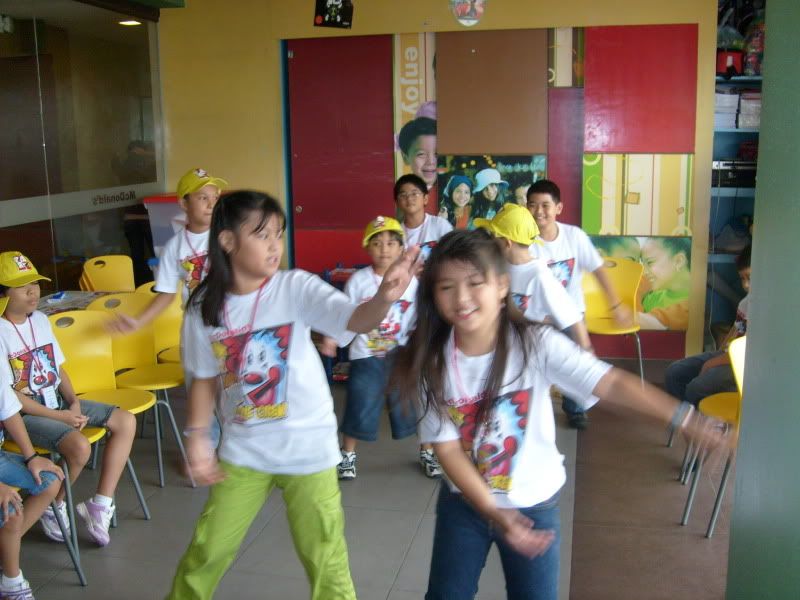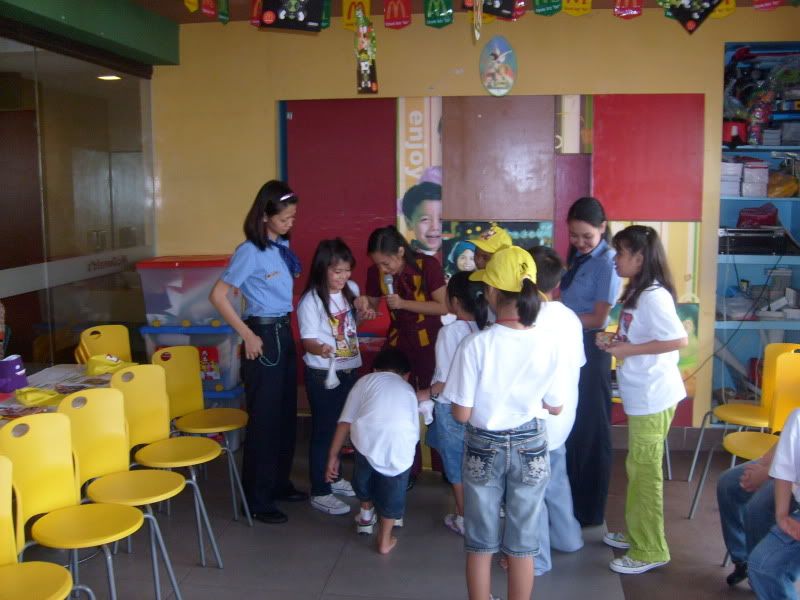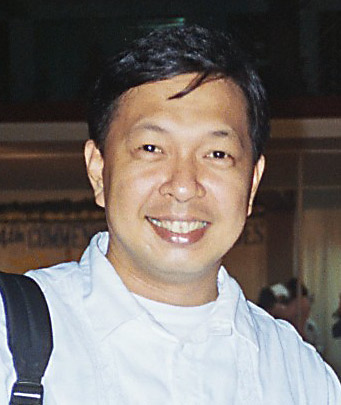McDonald’s Kiddie Crew Workshop 2009: Joshua goes to work!
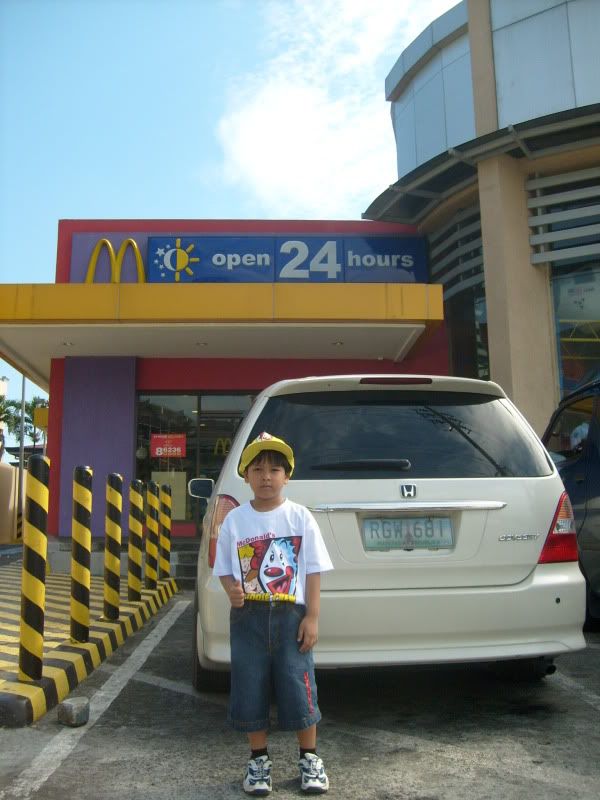
Joshua reports to work at McDonald’s North Ave.
I think it was around early last month while eating at McDonald’s North EDSA that a particular flyer caught my attention. It was about the fast food chain’s program for kids entitled MdDonald’s Kiddie Crew Workshop. I had been looking for a good summer vacation activity for Joshua and it looked like a cool way for children to learn about work and about life in a fun-filled environment.
Maybe hesitant at first, I thought Joshua soon embraced the opportunity, curious to see how things got done in a McDonald’s store and at the young age of 6, ‘work’ there for a week. Actually the workshop only called for a couple of hours in a day for five days. With the kids either being part of the morning batch or the afternoon shift so to speak. Joshua was a part of the morning batch.
The workshop entailed a reasonable fee of 650 pesos inclusive of the daily snacks, uniform (cap, shirt and ID) and certificate. I bought Joshua another shirt to make sure he has a clean one ready everyday for the week long endeavor. After deciding on the most convenient workshop schedule, it was all systems go for our young industrious child to face the corporate world of the world famous McDonald’s franchise.
So that Monday morning (May 11), I accompanied Joshua to his place of work, proud of my son starting out on his first “job”.
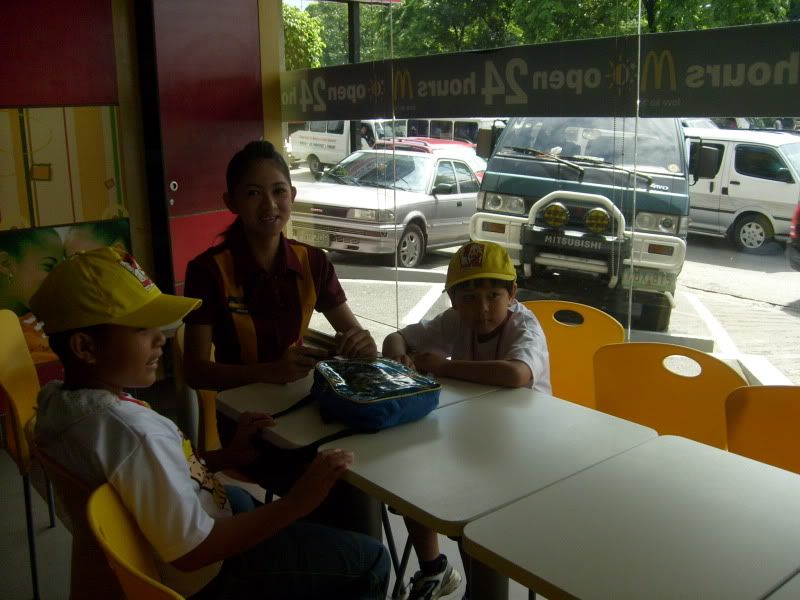
Ate Love briefs the youthful crew
A junior supervisor named Ate (big sister) Love was assigned to handle Joshua’s batch of food crew member. Initially a bit of a bore as some of the participants came late; it soon became exciting for Joshua with the start of the store tour.
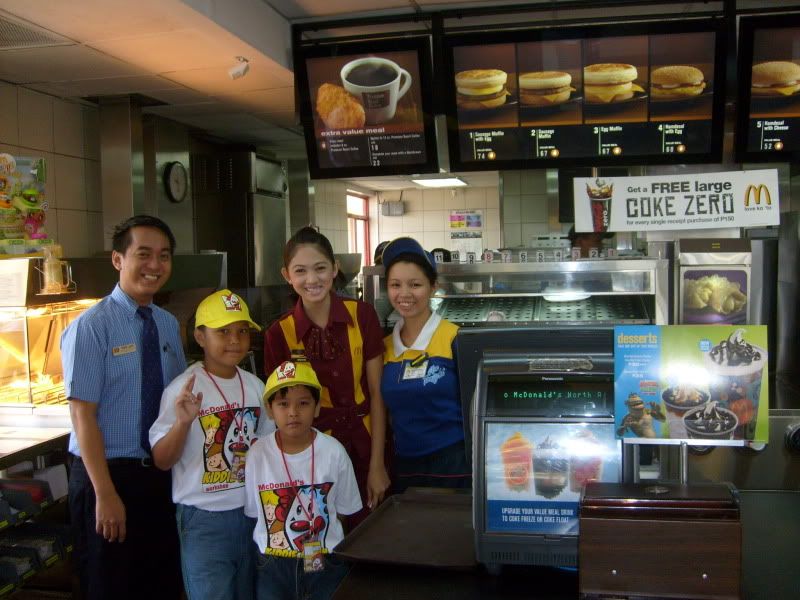
The kiddie crew meets their senior counterparts
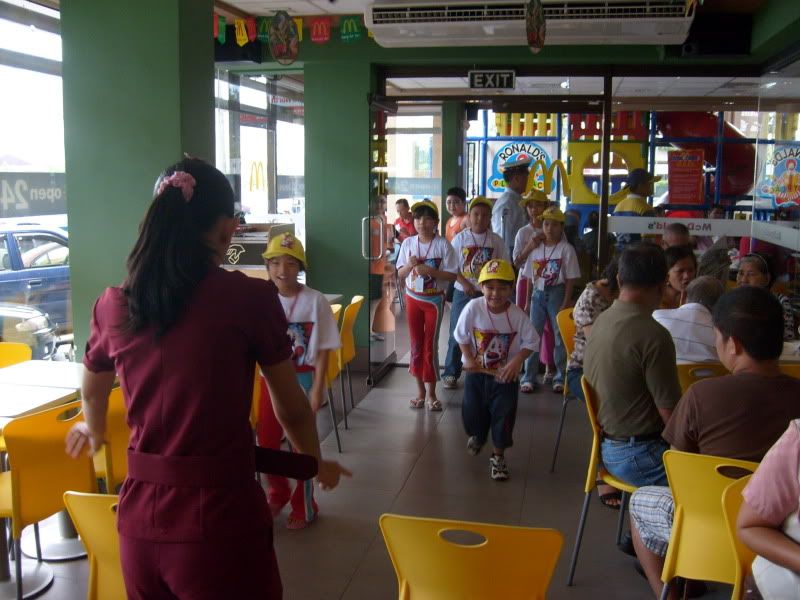
Play time
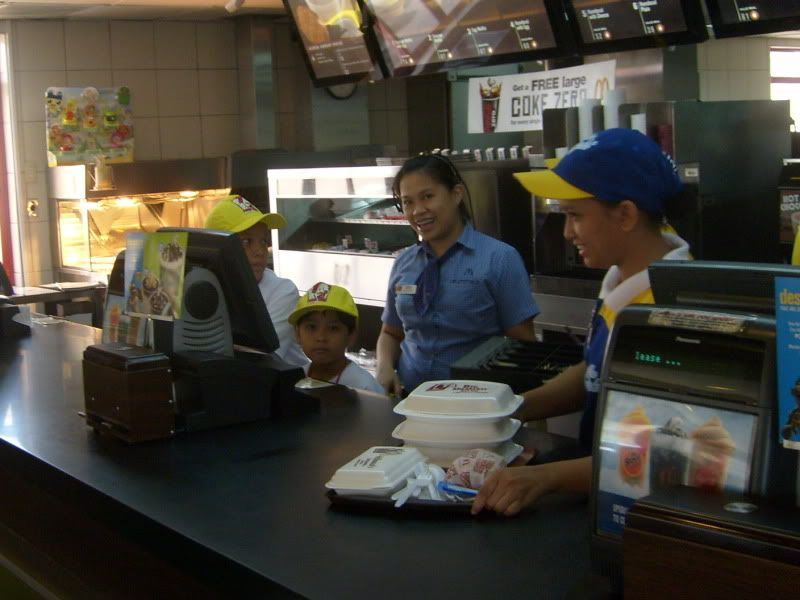
Back to work: Joshua serves time at the counter
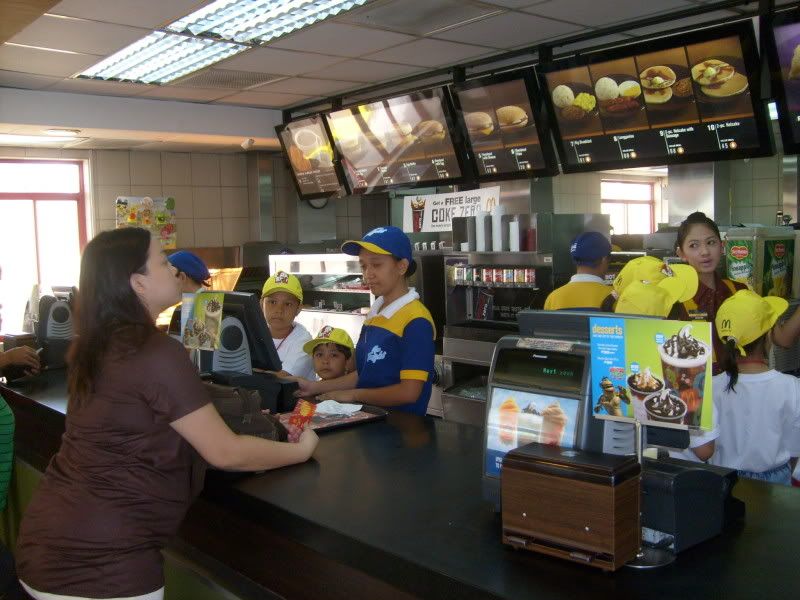
Throughout the week, Joshua and the rest of the kiddie crew was assigned light tasks, like welcoming customers at the front door. Flashing that signature smile, Joshua would greet incoming customers with the familiar lines, “Good morning…welcome to McDonald’s!”
Another highpoint I think was when they were assigned at the counter greeting the customers and assisting in giving the customers their food items.
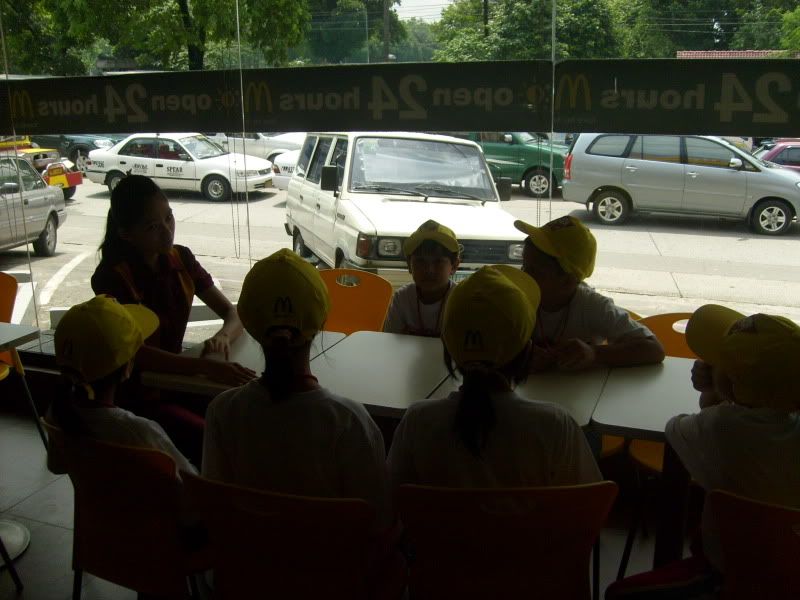
“Debriefing” time
Joshua was taught among others: 6 steps at the McDo Counter
- Smile at the counter
- Take the order; do suggestive selling
- Assemble the order
- Present the order
- Receive the payment
- Thank the customer; and then ask for repeat business
Of course the workshop was just all ‘work’ but a lot of play as well. The program provided for group interaction through game play and creative activities like collage making and paper puppet construction.
What was evident and interesting to me was how the program effectively incorporated its corporate philosophy into the activities.
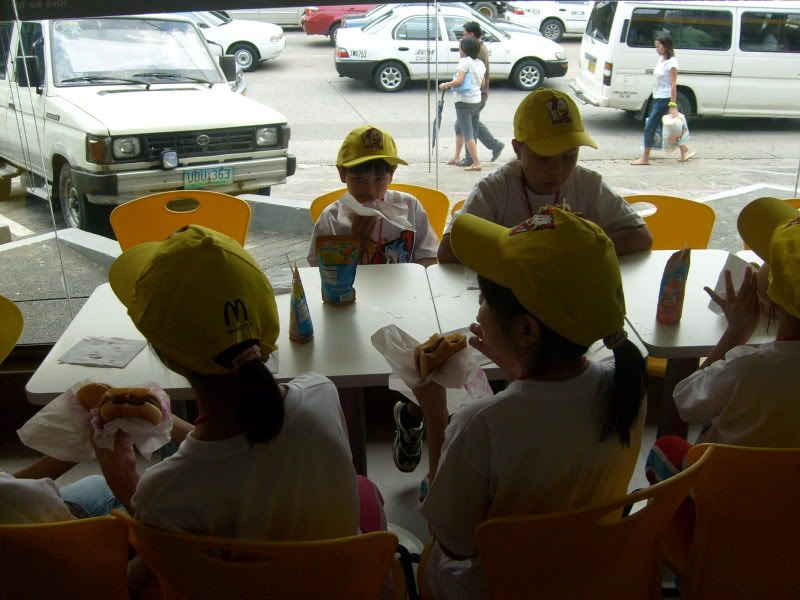
Snack time
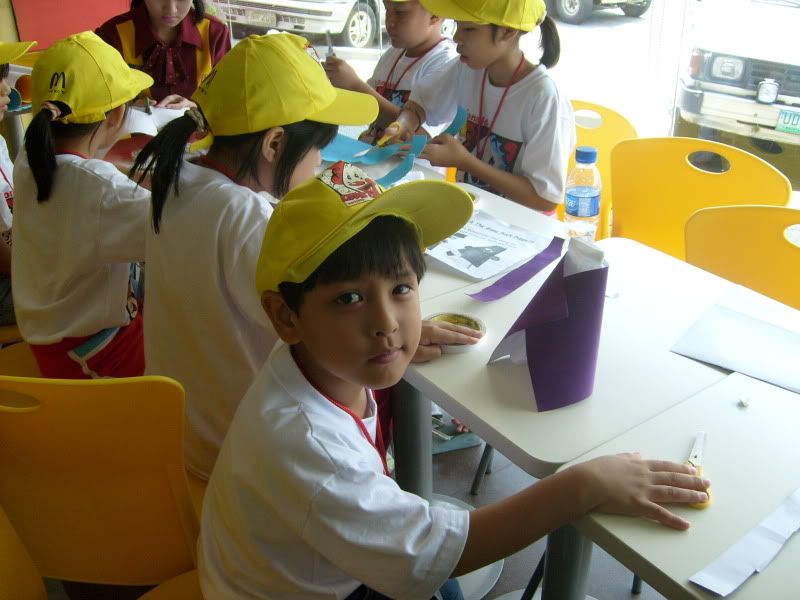
Workshop time
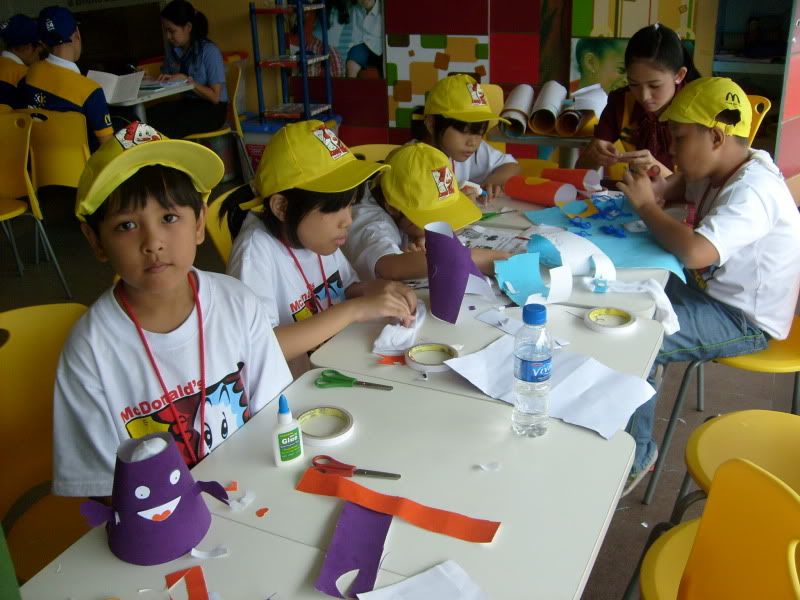
Joshua and his Grimace
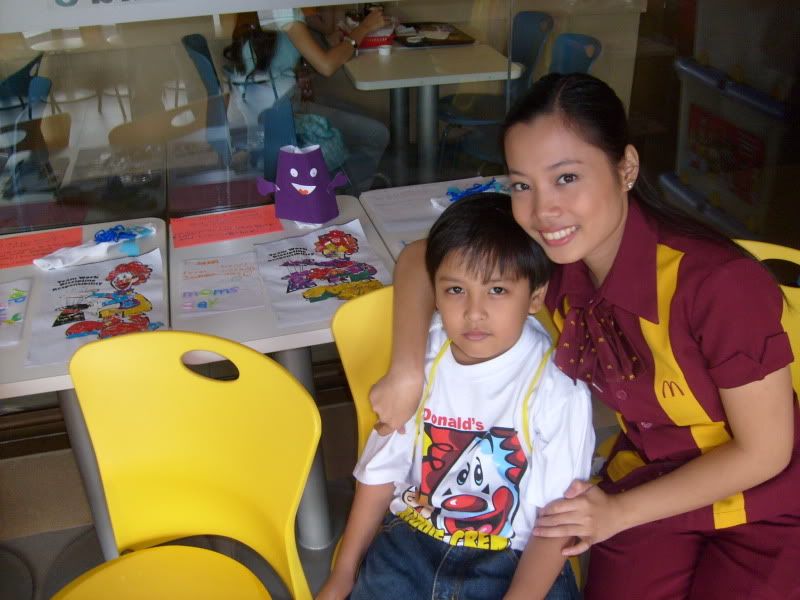
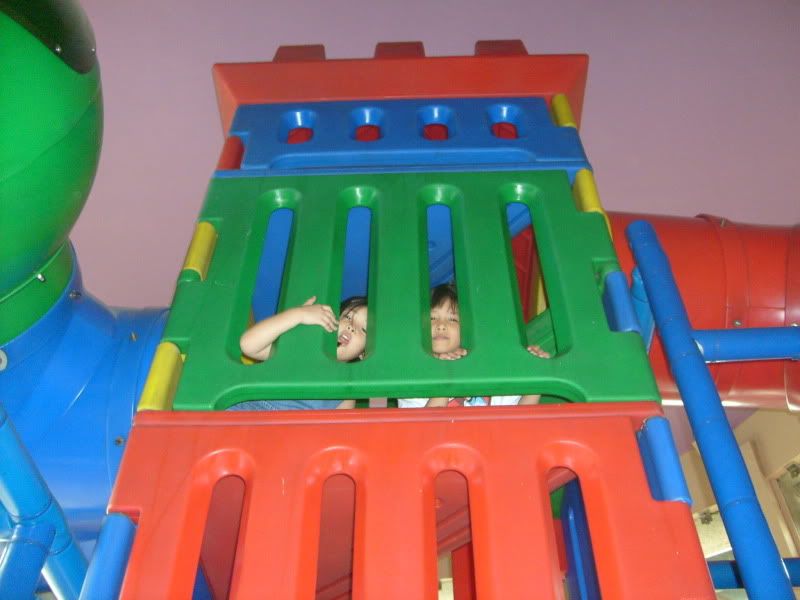

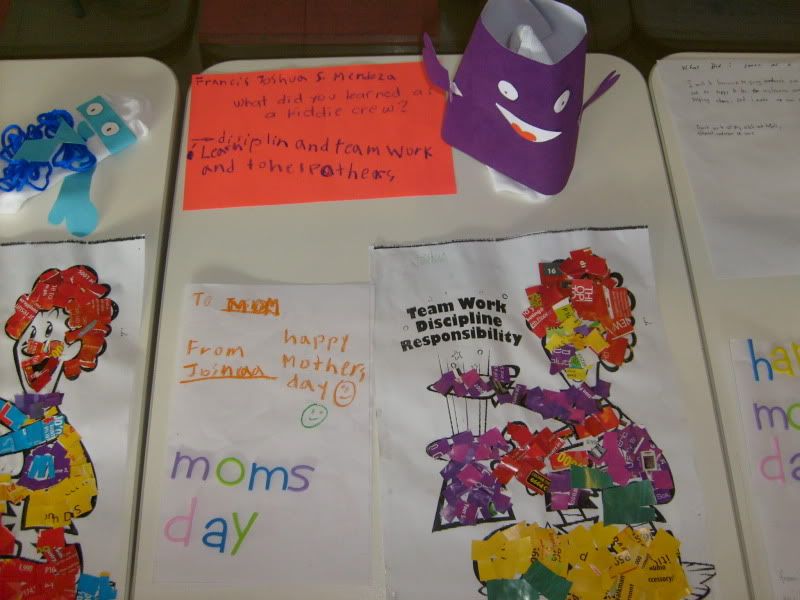
Joshua’s workshop creations
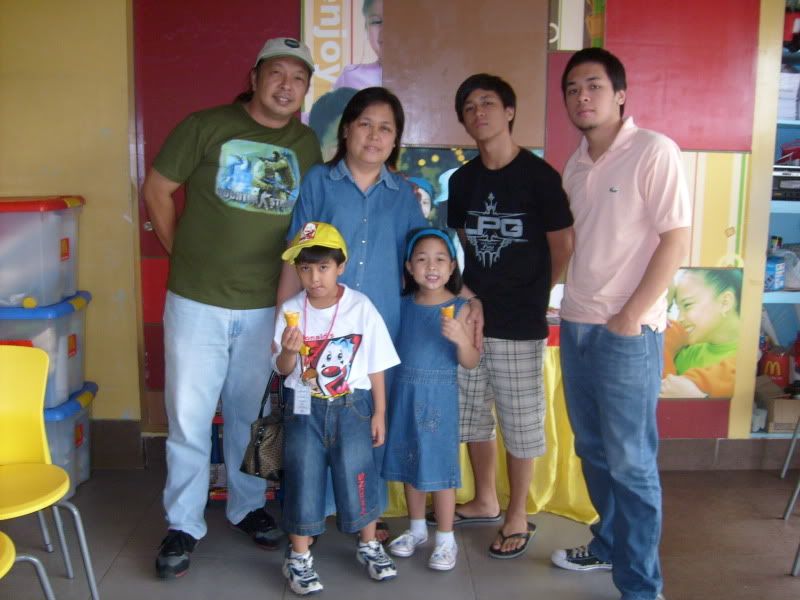
Joshua’s proud family
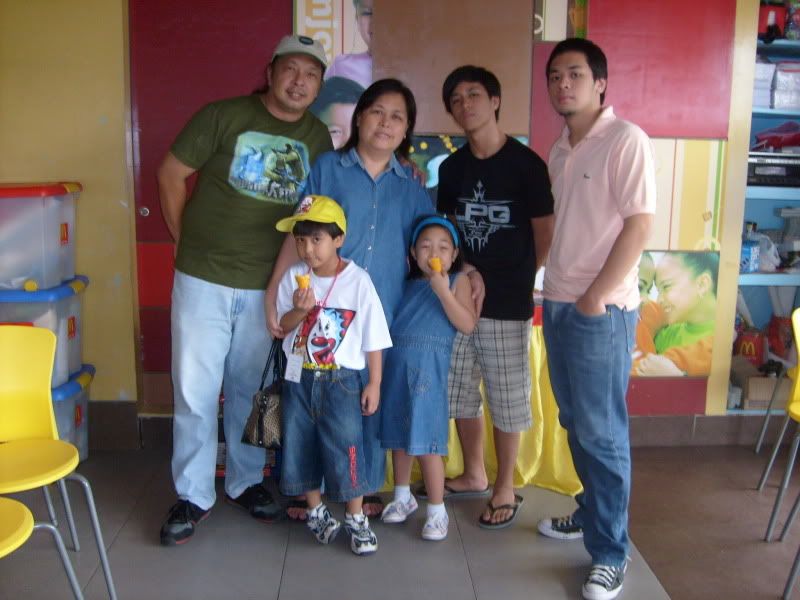
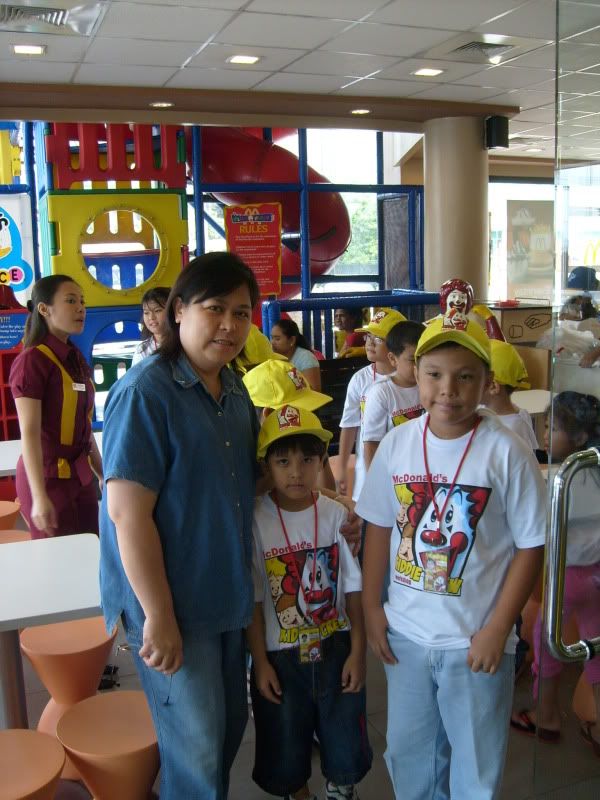
Mama Odette accompanies Joshua during the ‘graduation’ ceremony
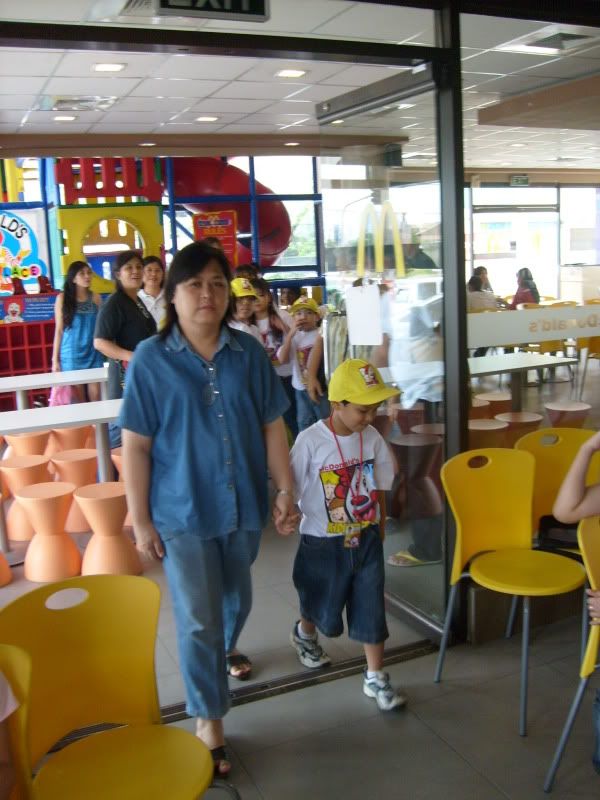
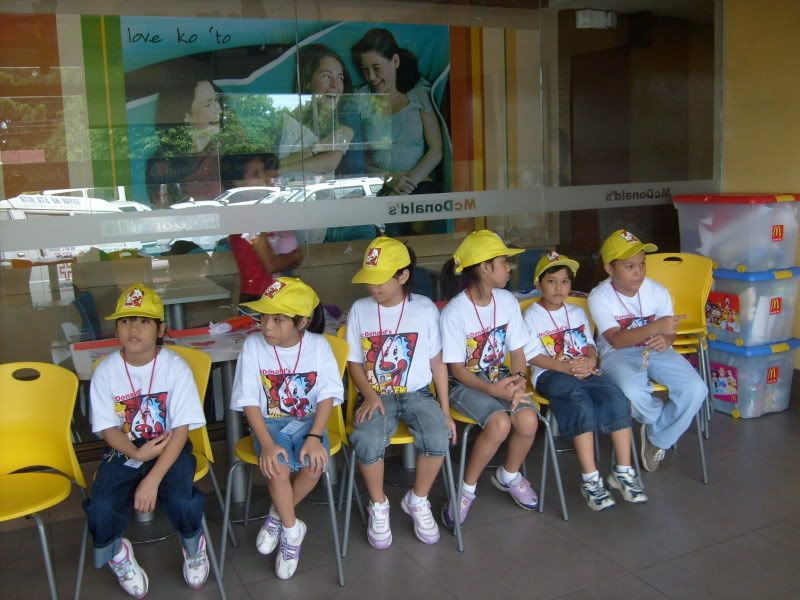
The graduates await the start of the program
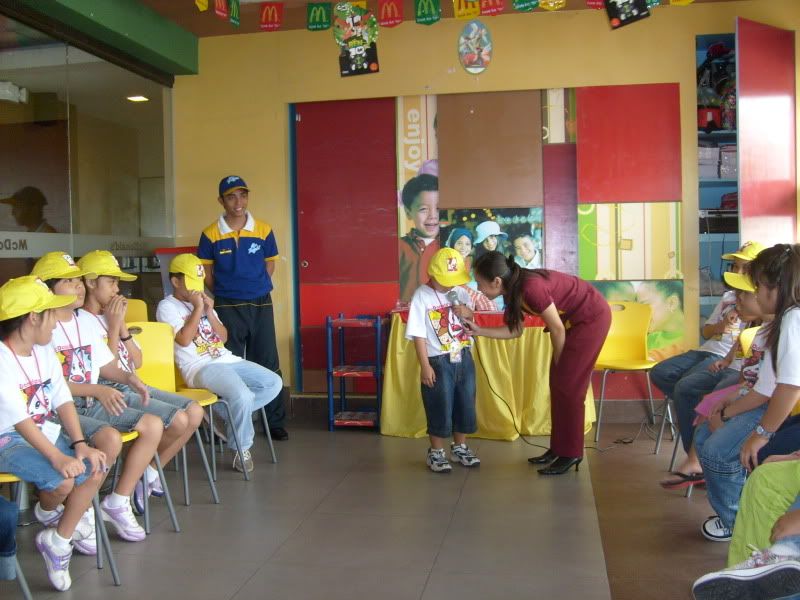
Bashful Joshua is interviewed by Ate Sheril
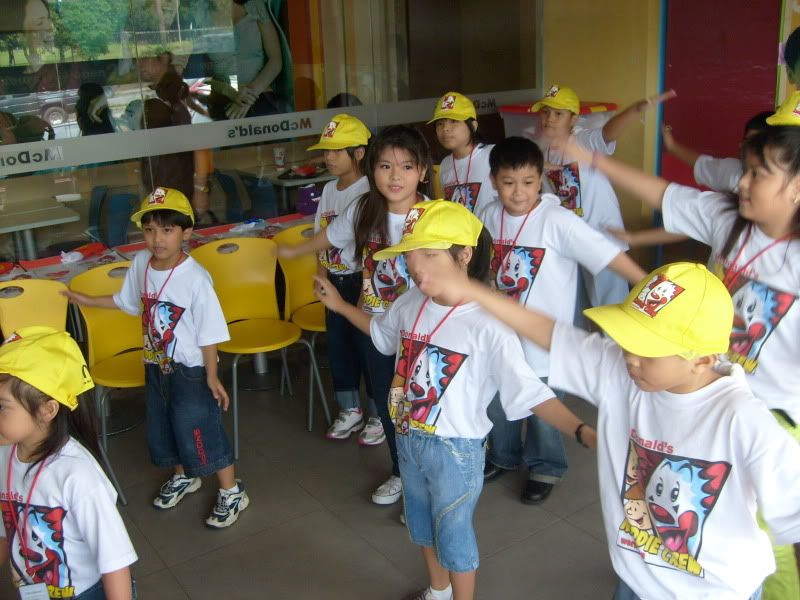
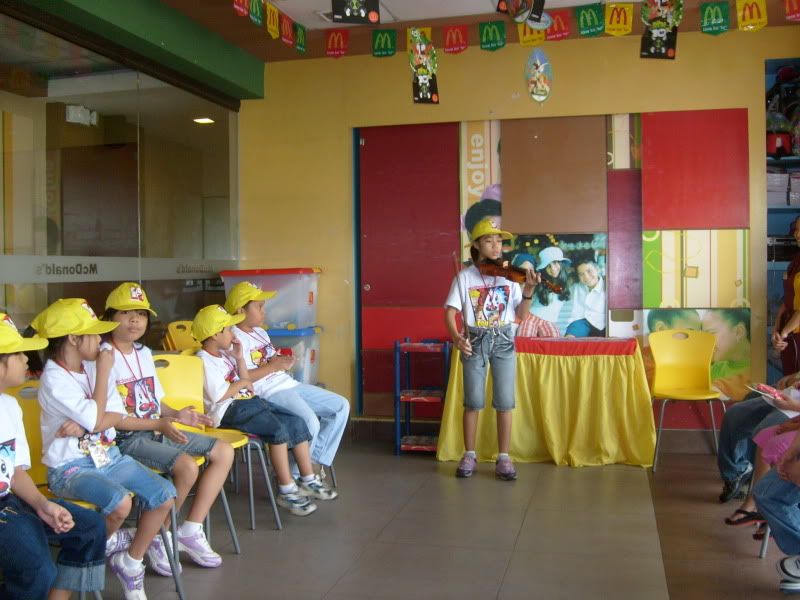
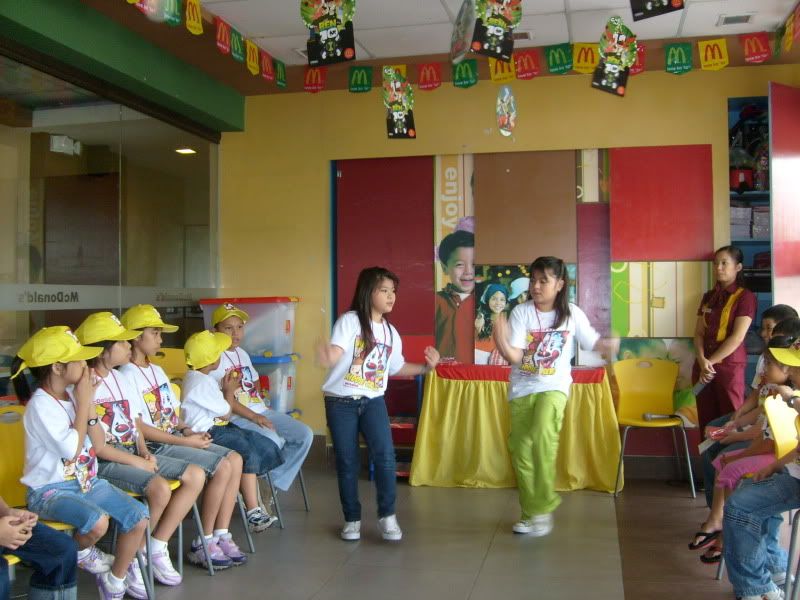
Two other sisters shared their dancing skills…
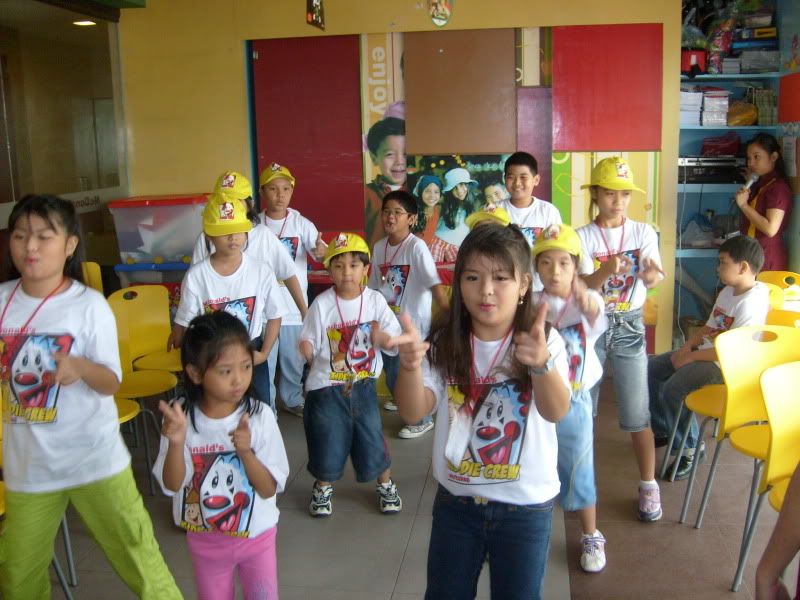
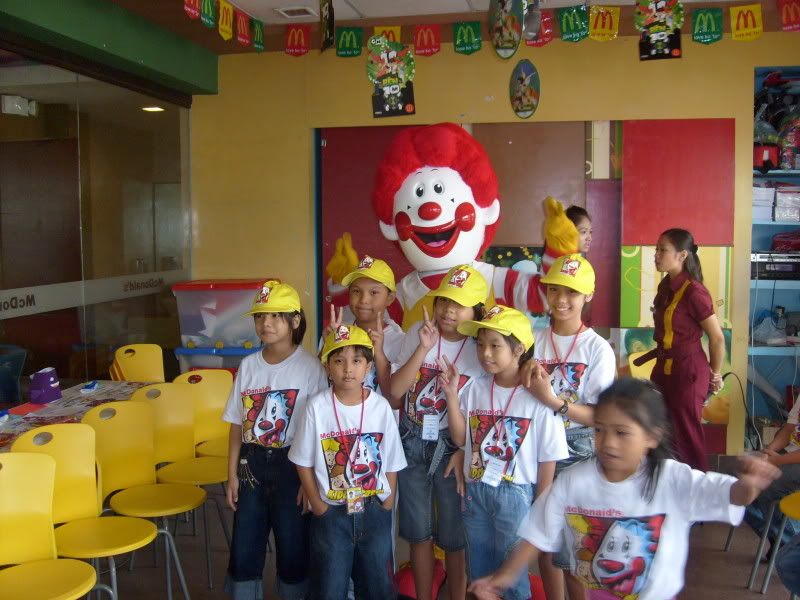
Morning crew group picture
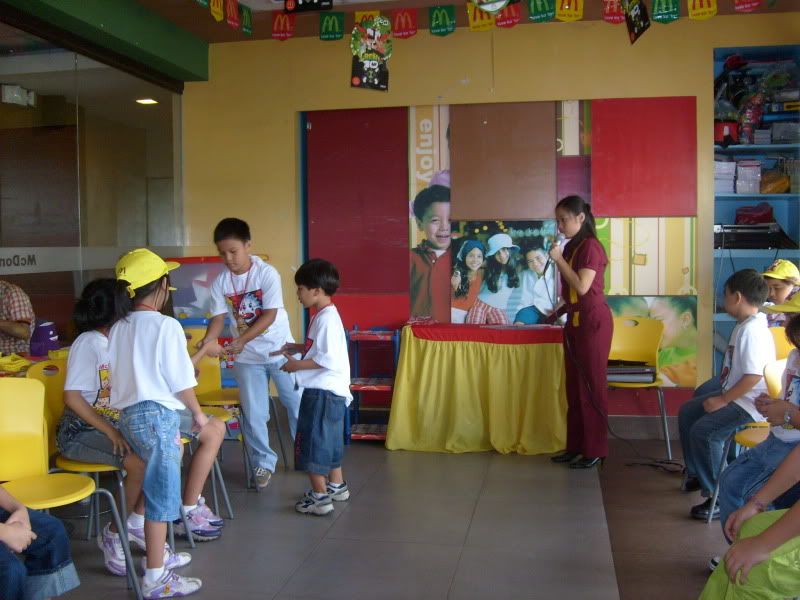
Prizes are distributed
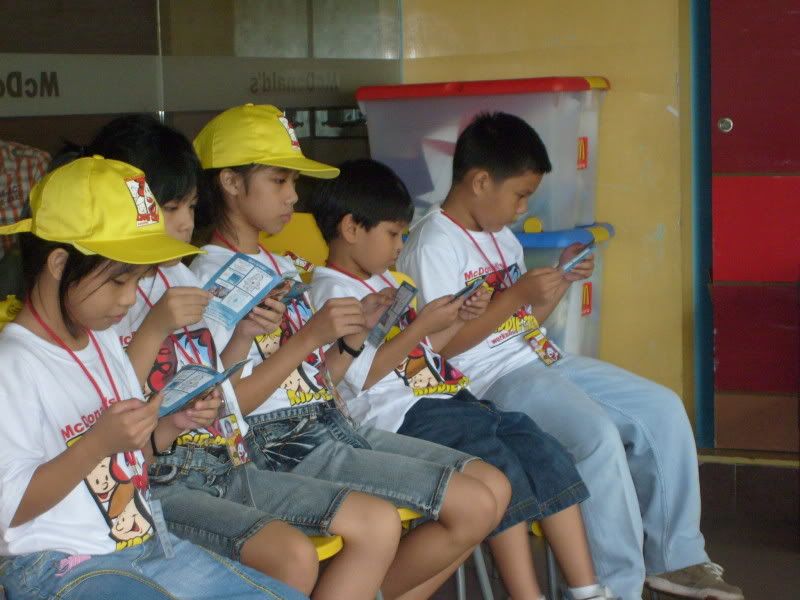
Crew members read through the activity booklet
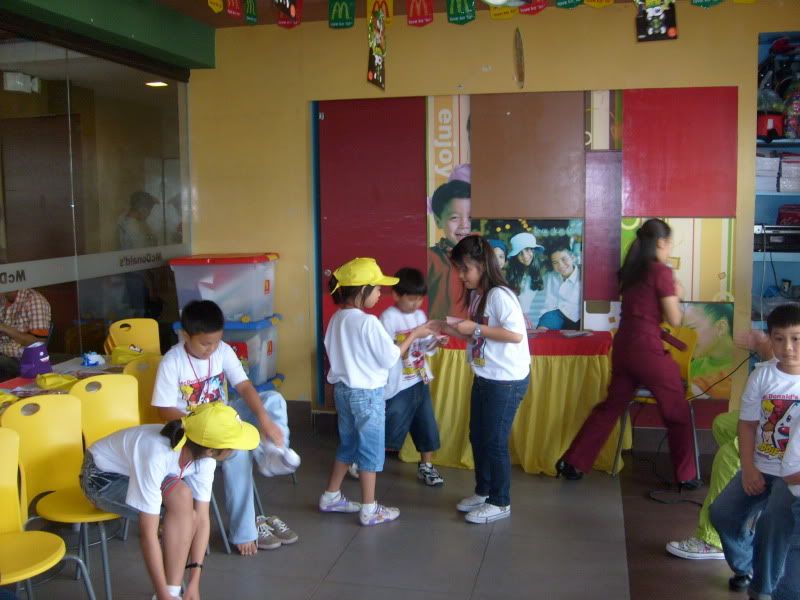
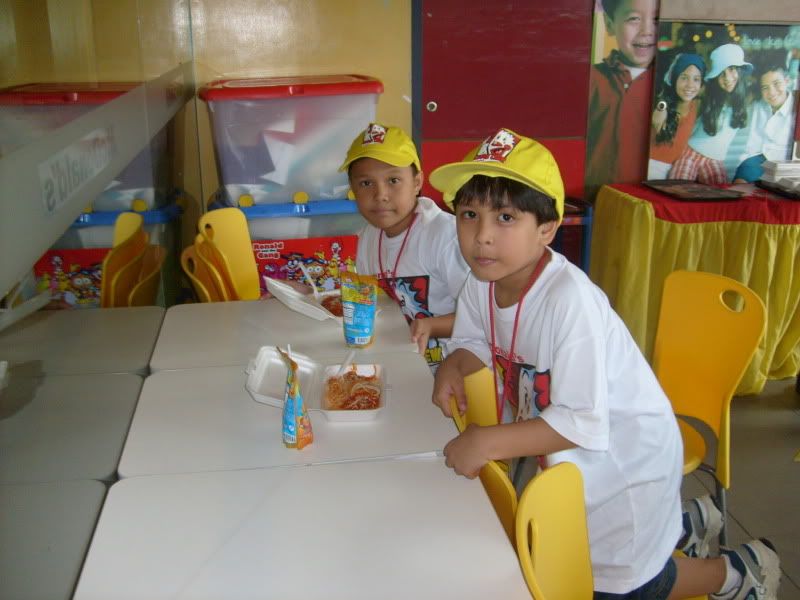
Merienda time
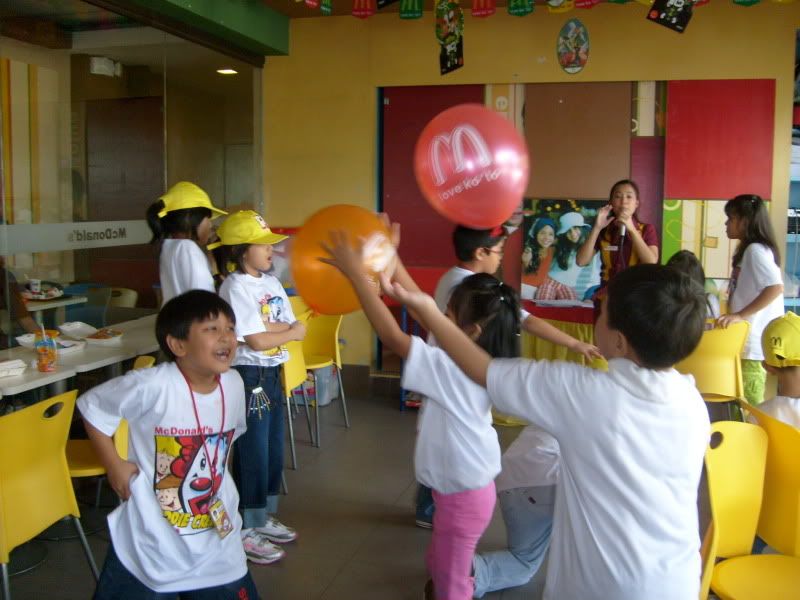
The fun continues

Kiddie Crew class of 2009
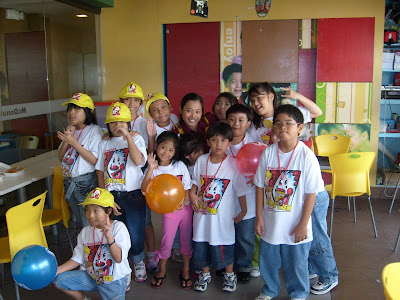
Wacky graduation picture
Before the formal program ended, all Kiddie Crew members were invited to attend the grand graduation of all Kiddie crew graduates this summer across Metro Manila on May 30 at the Philippine World Trade Center in Manila. That forthcoming event promises to be worth the subject of another blog post in the future.
For the meantime…congratulations, Joshua for another achievement in your youthful life! It may be a minor one, but any endeavor that gives dignity and value to work and labor will surely help children gain a proper perspective in realizing their respective career paths.
Grand graduation…here we come!
Labels: Family
